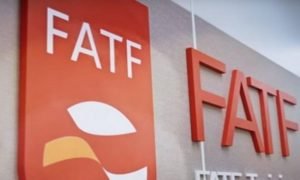After months of ups and downs, on February 21, Iran expired its deadline to ratify anti-money laundering measures required to bring it in conformance with international anti-money laundering rules.

Earlier, in October 2019, the Financial Action Task Force (FATF) extended the last deadline for this country to adopt Countering the Financing of Terrorism (CFT) and Palermo conventions.
However, Iranian officials eventually made their genuine decision to continue supporting terrorism by delaying the issue for months. This defiance, of course, proved how important it is for the ayatollahs to meddle in neighboring countries, fund their terrorist proxies, and fuel ethnic and religious conflicts in the Middle East. It is in fact so vital for their rule that they prefer to bear more economic pressures and isolation rather than quit their costly aggressive policies in the region.
During this period, international supporters of the Iranian government, who have much benefited from the opaqueness of Iran’s economy, honestly attempted to extend the deadline.
However, Russia, China, and the E3 finally realized that the ayatollahs had made a strategic decision to defy the FATF standards. Interestingly, Iran was re-designated in the FATF blacklist under the rotating presidency of its close ally China, which shows the disappointment of Iran’s allies over any further concessions in this context.
What Results from Iran’s Entering into the FATF Blacklist?
FATF as a technical intergovernmental body has been established to protect the international financial system. This non-profit organization requires countries to set their financial transactions based on akin measures hoping to achieve a transparent banking system.
FATF, in fact, pursues to incite the countries for combating financing terrorism and money laundering as the main pillars for protecting the global financial system from risks. In other words, objecting to FATF standards is synonymous with the country’s support for terrorism.
On the other hand, Iran’s willful failure to uphold Anti-Money Laundering (AML) and terror finance standards, doing business with any Iranian bank, the insurance company, or other financial institutions, whether sanctioned or not, comes with heavy risks and high costs.
Iran Briefing | News Press Focus on Human Rights Violation by IRGC, Iran Human Rights

